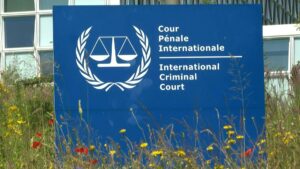Is India joining new “Great Game” in Mediterranean?
Indian Prime Minister Narendra Modi’s one-day visit to Greece last week, during which bilateral relations were upgraded to a comprehensive defense partnership, was followed with great interest in Türkiye
By Iftikhar Gilani
Will an emerging alliance between modern day King Porus and Greece’s Alexander the Great lead to a new “Great Game” in the Mediterranean Sea, which borders 22 countries and shares 46,000 kilometers of coastline?
Indian Prime Minister Narendra Modi’s one-day visit to Greece last week, which expanded bilateral relations between the two countries into a comprehensive defense partnership, was followed with great interest in Türkiye. The visit signaled India’s permanent military presence in the Mediterranean, as its naval vessels will now call at two ports in Israel and Greece that transit Turkish waters.
In 326 BC, Greek conqueror Alexander the Great and Indian King Porus became allies after the fierce battle on the banks of Jhelum River (now in Pakistani state of Punjab). Alexander had convincingly defeated Porus, but then developed a newfound respect for his fierce resistance.
Two years ago, many Indian strategic experts had toyed with the idea of forging an alliance with Greece, Israel and Armenia to counter the Türkiye-Azerbaijan-Pakistan axis. Launched in 2017, the trilateral bloc of Türkiye, Azerbaijan and Pakistan had gained momentum during the Nagorno-Karabakh conflict, in which defeated Armenia ceded the land to Azerbaijan.
However, it soon became clear to the Indian experts that Israel and Armenia were far apart and could not come together for ideological and historical reasons. Therefore, it was decided to treat Armenia separately and focus on building an axis with Greece, Greece-Cyprus and Israel.
The defense partnership announcement came at a time when Turkish President Recep Tayyip Erdoğan is planning a trip to India for the G-20 summit on Sept. 9-10. Although they are NATO allies, Athens and Ankara have been at loggerheads for decades over various bilateral issues, including disputes over maritime borders, overlapping claims to their continental shelves and the long-running Cyprus dispute. The complex set of disagreements have brought them to the brink of war at least three times in the last 50 years.
Ahead of Modi’s visit, the Indian air force had participated in an air exercise in Greece in May, and the Indian navy conducted a joint exercise with the Greek navy to show its presence in the Mediterranean.
Modi said in Athens that the two sides had decided to strengthen bilateral ties in the areas of defense and security, as well as infrastructure, agriculture, education and technology. “In defense and security, we have agreed to strengthen our military ties and defense industries,” Modi said. An intelligence-sharing mechanism to combat terrorism has long existed between the two sides. It was the first visit by an Indian prime minister in 40 years. Indira Gandhi had visited Greece in 1983.
-India wants to control sea routes
Ioannis E. Kotoulas, an expert at the University of Athens, believes that India’s economic security requires control over sea routes to Europe.
“India is strategically located in South Asia, dominating the continental landmass of the Indian Peninsula and the vast expanse of the Indian Ocean. India’s strategic interests extend westward from the Indian Ocean region to the eastern Mediterranean, where Greece, a traditionally maritime-oriented state, lies,” he wrote in a report for India’s leading think tank, Manohar Parrikar Institute of Defense Studies and Analysis (MPIDSA)
While India’s military is among the strongest in the world, Greece has the 16th strongest air force in the world, the third strongest in the EU, and has a sizeable naval fleet. He said the presence of Indian naval forces in the Mediterranean Sea sends a clear symbolic and practical message of power projection across the Eurasian landmass.
Former Indian diplomat Anil Trigunayat, who is currently a distinguished fellow at the right-leaning think tank Vivekananda International Foundation (VIF), said proposals for a partnership between Indian and Greek ports are under consideration.
“Another important area of cooperation in energy security could be closer collaboration with the Eastern Mediterranean Gas Forum (EMGF). Also in the financial sector, New Delhi, like France, could offer UPI to promote trade and tourism,” he told the Financial Express.
Trigunayat, who headed the West Asian Division in India’s Ministry of External Affairs, said Greece is a Mediterranean power and fits well into India’s maritime strategy and cooperation.
Without referring to Türkiye, he added that the relationship offered multiple opportunities for cooperation, including countering the malign influence of some not-so-friendly powers.
-Indo-Arab Mediterranean Corridor
For several years, experts in India have been looking at developing a multimodal corridor between India and the Europe via Arab nations through Mediterranean to counter China’s Belt and Road Initiative (BRI). This involves a rail network between the United Arab Emirates and Israel via Saudi Arabia and Jordan to connect with the Israeli port of Haifa acting as a connector to the Mediterranean. Haifa will then connect with the port of Piraeus in Greece to transport Indian goods to Europe.
Recently India’s leading corporate group Adani Group acquired the strategic port of Haifa for $1.2 billion. Adani Group chairman Gautam Adani an ally of Prime Minister Modi vowed to transform the skyline of this Mediterranean city.
Not only will this project provide India with an alternative to the port of Chabahar in Iran, but the cooperation between India, Israel and Greece will also limit Türkiye’s exploration of the Mediterranean.
The plan was first discussed at a meeting of the foreign ministers of India, the United Arab Emirates, Greece, Cyprus, Israel and Saudi Arabia in Dubai on the sidelines of the 12th Sir Bani Yas Forum in November 2021.
Shortly after their re-election, Erdoğan and Greek Prime Minister Kyriakos Mitsotakis had agreed on a fresh start in their bilateral relations after the thaw triggered by the deadly earthquake earlier this year. Both had agreed to build on the “positive momentum” that followed Greek aid during the earthquake.
According to journalist Nektaria Stamouli, Greece insists on settling its differences over the delimitation of the continental shelf and the exclusive economic zone (EEZ), Türkiye wants to pursue other issues, including the demilitarization of the Aegean islands. Therefore, there is no certainty about the durability of this thaw.
–Encircling Turkiye
Greece is seeking an EEZ for its islands in the Mediterranean Sea, citing the 1982 Convention on the Law of the Sea (UNCLOS) UN. Under UNCLOS, a sovereign state has special rights up to 200 nautical miles from its coast with respect to the exploration and exploitation of marine resources, including energy production from water and wind.
However, the Convention requires states to designate a principal island from which the distance can be measured, but not smaller islands.
In the Turkish War of Independence from 1919 to 1923, Greek forces were defeated by the Turkish National Army and forced to retreat from the Anatolian Peninsula. At the end of the war, Türkiye signed the Treaty of Lausanne in 1923 with Greece and other major powers, including Britain, France, and Italy, establishing its western borders.
However, some issues remained unresolved, including the status of the islands in the Aegean Sea between the Greek and Anatolian peninsulas.
Apart from two islands, Gokceada and Bozcaada, near the strategically important Turkish strait of Canakkale – where the Ottoman Empire fought the legendary Battle of Canakkale (Gallipoli) – all other Aegean islands were left to Greece.
Meis (Kastellorizo), a Greek island, is located only two kilometers off Turkiye southern coast of Türkiye and 570 km from the Greek mainland. The interpretation of the UNCLOS provision that the EEZ must be 200 nautical miles from the coast of this island means Turkiye will be left with no territorial waters, continental shelf, or other maritime rights in this area.
Given the strategic importance and large oil and gas reserves in the Mediterranean, countries hostile to Türkiye’s interests have used these waters to surround the country.
Whether Türkiye will be able to break this string of pearls woven with its newfound friendship with Libya, Egypt, the United Arab Emirates and Saudi Arabia is still uncertain.









